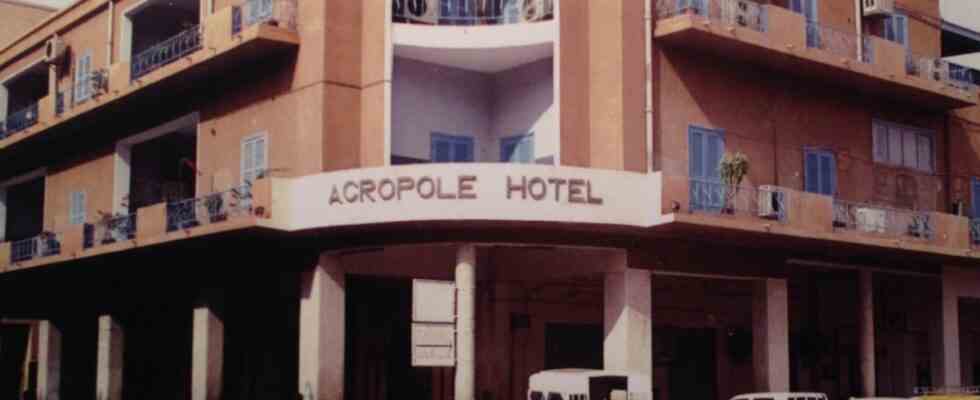I’ve been getting up at 5:30 a.m. every day for 50 years, George Pagoulatos once said, as if his life weren’t anything special. He took care of breakfast, the guests and their wishes, one wanted to go to the pyramids, the other needed permission to take pictures and another had lost his SIM card. Decades passed, but Pagoulatos never went far away, was almost always in Hotel Acropole in Khartoum, which belonged to him and his two brothers, Thanasis and Gerasimos. From a purely spatial point of view, a small life – and yet the always reserved George Pagoulatos himself had to admit that it was quite “ready for film” because the story kept coming back to him: from Leni Riefenstahl to Bob Geldof. Most recently, star architect David Chipperfield exhibited a portrait of Pagoulatos at the Venice Biennale in 2016.
Unfortunately, the film about Pagoulatos’ life was never made, although there were enough requests. He died at the end of last week, he was 76 years old.
It is a life that reflects Sudan’s recent history. And that shows that migration once went in a different direction, from Europe to Africa. At that time many impoverished Greeks left for Egypt and the Sudan. Pagoulatos grew up in Khartoum and took over the Acropole from his parents in 1967, which at that time still served alcohol and is said to have had a kind of nightclub.
Islamists blew up the hotel
The hotel is still there, but the country of yesteryear isn’t: Pagoulatos and the Acropole experienced coups and the Islamic revolution, beer was thrown into the Nile, which flows past the hotel a few hundred meters away. The hotel survived the nationalization of all operations and countless economic crises. Osama Bin Laden took up residence in the city and Islamists blew up the Acropole. Rebuilding it opposite its original location, the brothers stood behind the front desk or sat in their small office for decades, making the Acropole perhaps not the most luxurious hotel on the African continent – but one loved by its guests like few others another.
This was mainly due to George Pagoulatos. “He was more than a host, there was no problem he couldn’t solve, under logistically and politically difficult conditions,” says Roman Deckert, who has been organizing scientific and cultural projects in Sudan for decades. When Deckert landed in Khartoum for the first time in 1997, he flew over an almost dark city, there was hardly any storm, everything was chaotic. “George was rock solid.” Over the past decades, Pagoulatos has organized permits, flights, telephones and contacts for thousands of journalists, diplomats and archaeologists.
“He was the best ambassador for Sudan,” says Deckert — a country that doesn’t appear particularly likeable to the outside world and that staggers from one regime to the next. Seen from the inside, however, it is a country with great culture, with people who have been fighting for democracy for years and whose friendliness is second to none. For the archaeologists, Pagoulatos organized the trip to the pyramids in the north. When Leni Riefenstahl was taking pictures in the Nuba Mountains and a helicopter crashed, the brothers tracked down a pilot from the Sudanese airline and a plane that Riefenstahl was flying out. A large poster of Bob Geldof hangs in the small office on the ground floor, warmly thanking him for his support during the time the Singing Samaritan set up a sort of headquarters at the hotel during the Great Famine.
The Acropole was never sophisticated, some rooms still have the shower in the corridor. Perhaps the greatest luxury to date is the thin veal escalope, which is served almost every evening at the buffet on the first floor. Sometimes George would join them. Always smartly dressed, an ironed shirt, untouched by all the chaos and dust of the city. A man of the world who made his home in a small hotel in Khartoum.

